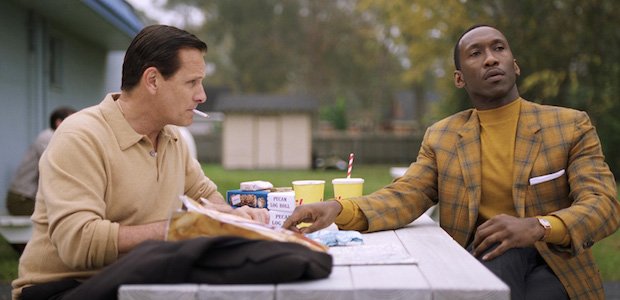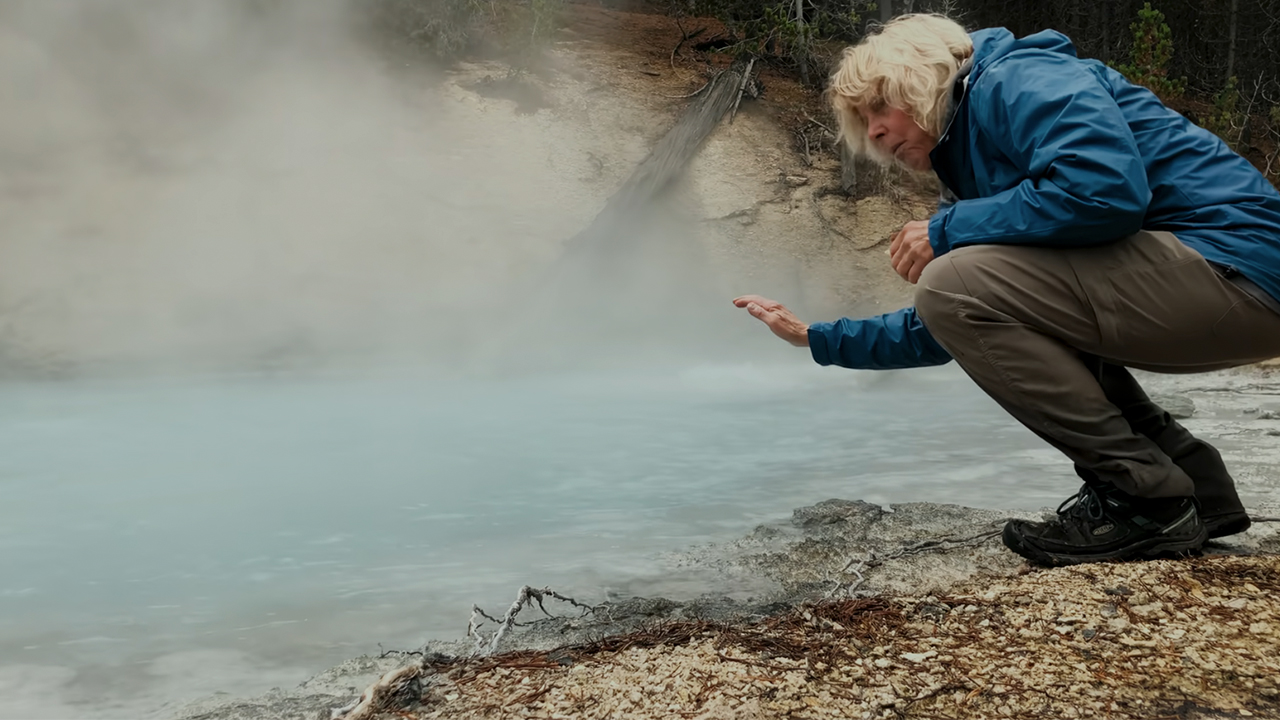Think back to Natalie Portman in Black Swan, Hilary Swank in Million Dollar Baby, J.K. Simmons in Whiplash or, you know, Daniel Day Lewis in virtually every film he's ever made. This occurs during Green Book, with both Viggo Mortensen and Mahershala Ali disappearing so seamlessly into their roles that you feel like you are watching the actual men on which this story is based. So while the story may be predictable, the performances never are, and they in turn elevate the material.
It's the 1960s in a racially divided United States of America. Frank "Tony Lip" Vallelonga (Viggo Mortensen) earns paychecks bouncing rowdy patrons from Manhattan's famed Copacabana nightclub. But the establishment is about to shut down for renovations, meaning "Lip" needs to find a new line of work to provide for his caring wife, Dolores (Linda Cardellini), and cute kids.
Opportunity presents itself in the form of Donald Shirley (Mahershala Ali), celebrated concert pianist and acclaimed composer whose about to embark on a tour of the Deep South. Remember, though, that this is the 1960s, and the Civil Rights movement hasn't implemented much change in our society. Shirley needs a driver and a bodyguard, and he believes that Vallelonga is the right man for the job.
The Green Book of the title refers to an actual historical object, a guide that African Americans were asked to use when traveling to help them find establishments that allowed them to stay there. The South was still deeply segregated at the time of Don Shirley's tour, so both men knew they were likely going to encounter resistance. How they handle it becomes the driving force behind Green Book, the movie.
These events actually happened. The Green Book screenplay is co-written by Nick Vallelonga, son of "Tony Lip," and while it's likely been Hollywoodized to work as an intended crowd pleaser, these men really did stare down systematic racism to make a point -- that Donald Shirley deserved a place of honor in the very same establishments that he was being invited to play.
The lessons of Green Book are predictable, though that doesn't make them less worthy of retelling. Using the time-tested odd-couple format, the refined and distinguished Shirley transfers culture and dignity to the slovenly Vallelonga, while the latter teaches the pianist to appreciate pop musicians like Little Richard. The duo might not change too many minds in the backwoods South, but they rub off on each other in sweet and sentimental ways.
Side note: Director Peter Farrelly -- yes, one half of the comedy directors The Farrelly Brothers -- balances drama and comedy here, but too often succumbs to the "Ignorant Southerners" cliché, when it wasn't necessary. The portrayal of the South in segregated times is straight out of the Hollywood Playbook, making Green Book as subtle and nuanced as you might expect a movie by the director of Stuck on You and There's Something About Mary can be. While I could imagine that Don Shirley and Frank Vallelonga encountered resistance from Southern restaurants and clothing establishments who weren't ready to serve an African-American client, the fact that they meet stubborn bigots are every turn gets to be a little heavy-handed and on the nose in the otherwise dexterous Green Book.
That being said, the performances of the two men surpass any tonal missteps in Green Book, and are worthy of the price of admission to Peter Farrelly's movie. It's remarkable how good the actors are in their lead roles, considering they each nail polar-opposite portrayals. Mahershala Ali is quiet and calm in his space, calculating every movement and debating every turn of phrase so that Donald Shirley is a credible human character, not a stereotyped fussy snob. Ali also gets the film's most beautiful moment, when Shirley stands on the side of the road and sees Southern workers tending to a field. In the moment, he sees how close he might be to being in their spot. But they also see the possibility they have of eventually being in his spot, and all of this is conveyed with no dialogue.
On the flip side, it's nearly grotesque the length that Viggo Mortensen slips to physically play Frank "Tony Lip" Vallelonga. It's not just the weight gain (though that's significant). It's the absence of couth that we've come to accept from Mortensen, a stylish performer who embraces the street in every scene of this movie. It's a remarkable transformation, and one that will have him in a tuxedo on Oscar night, waiting to see if his name might be called as the winner of the Best Actor trophy.
It's a pleasure watching both men work here. Green Book may be shooting fish in a barrel as it tries to reach obvious conclusions regarding race relations. But the "fish" are still important, and the "barrel" is still relevant, more than 50 years after this story actually took place. And that's saying something.

Sean O’Connell is a journalist and CinemaBlend’s Managing Editor. Having been with the site since 2011, Sean interviewed myriad directors, actors and producers, and created ReelBlend, which he proudly cohosts with Jake Hamilton and Kevin McCarthy. And he's the author of RELEASE THE SNYDER CUT, the Spider-Man history book WITH GREAT POWER, and an upcoming book about Bruce Willis.











